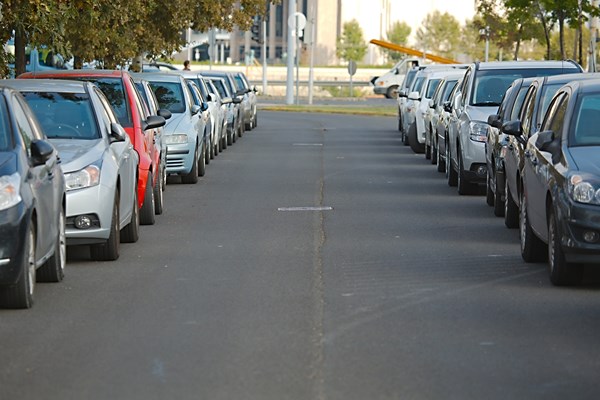Street parking program empowers local neighborhoods
Oct 30, 2023

Ulupono Initiative applauds the recent enactment of Bill 20 into law, which will help manage on-street parking in Oahu neighborhoods through the Restricted Parking Zone (RZP) program. The bill formalizes a framework for parking management on one of our most valuable public resources – our public streets. The new law will make the Kalihi Valley RPZ pilot program permanent and creates a system for managed parking programs in other neighborhoods.
Aimed at managing the availability and access to parking, the program allows households to purchase various types of parking permits in communities that have opted into an RPZ, allowing those permit holders to park in that RPZ zone. Annual and visitor permits will be made available in these RPZ zones thus ensuring that those who need to park can so do.
Our transportation behaviors are shaped by our local policies and unmanaged parking isn’t just an issue in Hawaii. In a recent opinion-editorial column authored by our own Kathleen Rooney, director of transportation policy and programs, this was addressed with staggering statistics about what is happening in other large cities.
“Since 2000, population growth in Hawaii is just over 16%, but vehicle growth is up 29% — so vehicles are growing almost twice our population growth,” Rooney wrote in the column. “What we see in our state is also happening elsewhere, where unmanaged parking is essentially encouraging more vehicle use. In the New York region, researchers found that when parking was plentiful and available, vehicle ownership rates increase by 18% even when transit is accessible, according to Berkeley Public Policy Journal.”
In addition to increasing vehicle ownership rates, there are also financial ramifications that come with unmanaged parking. What many view as “free” is far from it. On average, an on-street parking spot is worth approximately $22,500. That includes $3,100 for construction and a land value of $19,400, according to “The Costs of Parking in Hawaii” report published by Ulupono Initiative in 2019.
An area just over three times the size of Waikiki, or 20% of Oahu’s public roadways, is dedicated to on-street parking, and much of it is unmanaged and “free.” Another consequence of the current model is that in households that have a dedicated driveway or parking space, individuals with abundant on-street parking are 2.5 more likely to park on the street instead of on their own properties.
While it is understandable that some will see the RPZ as simply another expense or privatization of public space; however, this ignores the current expensive subsidization within the status quo. Asking people to pay user fees does not restrict public access, but rather employs pricing to understand how needed and valuable these spaces really are — and to manage them effectively and avoid over-consumption. It will create a way for residents to help manage parking in their neighborhoods, reduce the subsidization of a car dependencies, and move the state toward a more sustainable transportation future.

